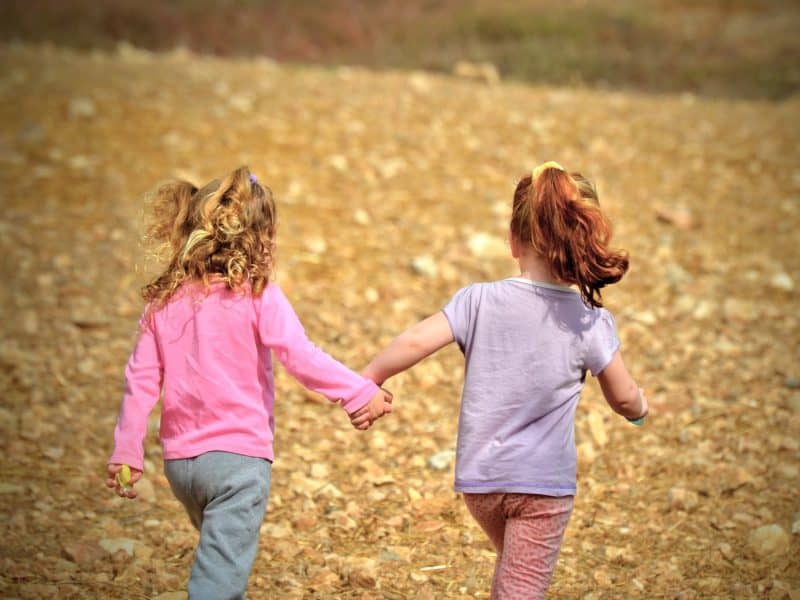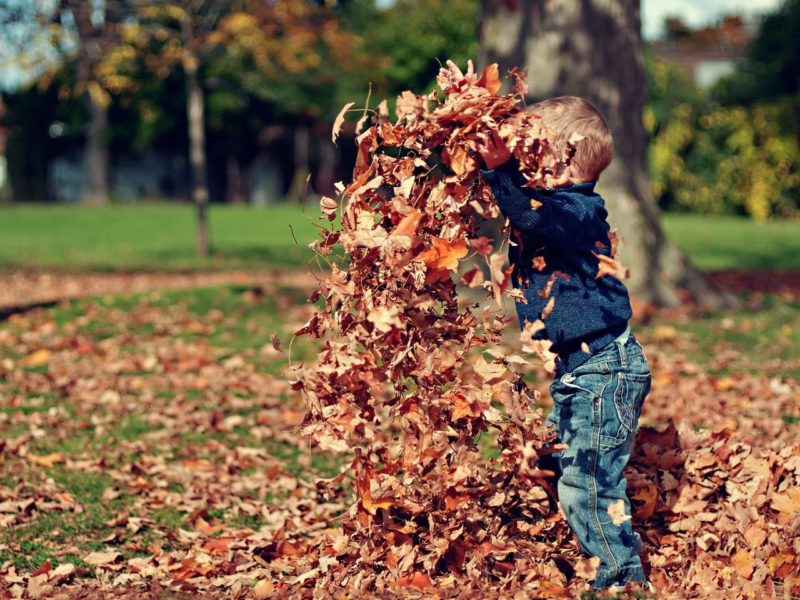If you could wave a magic wand that makes your children happier, less stressed, more creative, more intelligent, more self-confident, more self-reliant, more intuitive, more socially aware and healthier – would you do it? You can. It’s easy, as easy as saying abracadabra. It really works and there is scientific as well anecdotal research to back it up. All you have to do is…

Let the children play outdoors
That’s it, really, that’s it. The simple fact that children are given time to play outdoors begins to show results within 10 to 15 minutes. I know I said it was easy, and I know it’s not always easy to arrange. We lead very busy lives and every moment has its schedule. But adults gain the same benefits as the children from being outside and playing or relaxing.
Again the benefits are perceivable within 15 minutes. Test this theory at the end of your working day by going outside into your garden, if you have one, or a terrace or a yard, and just standing there, watching and listening. Feel the air, listen to the birds (there are always birds, even in the desert) and feel that tight band round your head loosen.
It can become a precious part of your routine, the change of gear between full throttle work mode and a gentle coasting into the evening or week end.
There is also fear that prevents us from encouraging children to play outside. Fear of accident and “Stranger Danger”. Parents fall into roughly three categories, those who are really afraid and super protective, those who are not at all afraid and think it’s good for the child to learn how to fall out of trees, face up to bullies, deal with strangers and look after themselves, and those who are part way in-between the two.
Let’s look at the benefits.
Mental health
Like you children lead busy lives and like you they are under quite a lot of pressure. Think about that one. Children are under pressure, pressure to conform, succeed, be brave, be nice, pass tests and exams, keep to a busy schedule etc. They are also learning about life and trying to make sense of what they see and hear. They have their own worries and fears.
Like you they don’t like being organised all the time, they need time off. A few years ago children could come home from school, fling their bags in the corner; have a quick snack and a drink and then race outside to play. The playtime let off steam, burned off energy and refreshed the mind. Settling down to homework later was easier.
Studies show that the children worked much better and faster after the outdoor play. And incidentally, adults also showed the same benefits.
Now time after school is often filled with extra-curricular activities and the children are still being organised, still being taught. Can you imagine what that is like – perhaps much like your own overworked, over filled day?
Social Awareness
Taking part in free outdoor play, either on their own or with friends or neighbours gives the child a chance to make sense of their day and what they have observed. By playing with others children learn how to interact, socialise, communicate within a group and different groups, co-operate and to learn to take turns.
They are also learning to place themselves in their world. This can’t be learnt by playing on a computer or by using an app. There is no substitute.
Self-reliance
By playing outside and running about, climbing, arguing, exploring, trying and failing, trying and succeeding the child is learning very quickly how to take care of themselves. They are learning the best way of doing things, climbing, jumping, building things, observing things in nature.
The child’s self-confidence will grow so much faster if left to play without direction and supervision.
Increased Intelligence and Creativity
Children who play outdoors are learning all the time without realising it. By making dens, playing with water, hiding, experimenting with sticks, leaves, mud and observing shadows and wildlife – however tiny – they are building up a vast store of information on which to draw.
They are doing what we were all designed for. It is the oh-so-essential part of being human.
By playing and using their imagination and through observations made with all the senses the child will exercise their creativity. Creativity is something that is diminishing fast in the modern environment. An engineering firm noticed that its new intake of graduates were technically brilliant but were poor at creatively solving problems.
Conducting a survey amongst the older engineers and comparing training methods, activities, interests and childhood, a startling difference emerged. The older generations played outside and had made things to play with. The younger generation stayed indoors and played with other people’s creations. They had not developed the creativity of simple imaginative play and of making and designing simple play things.
Creativity is essential, not just for artistic pleasure, but to solve problems whether they be physical or emotional, business or social problems…
Physical Health
There is much interest in physical health and fitness. It has become a multi-billion pound industry. There is no need to recite the benefits of exercise, they are well known.
Children are tough, they won’t catch cold if they play in the rain or cold wind. They will learn about resilience, enjoy the thrill of the elements and learn how to cope. Schools who encourage playing out doors regardless of the weather found that there were markedly fewer colds and far fewer sick days taken.
Children will become physically stronger, more adept and more confident if allowed to play outdoors freely.
If you are anxious about “Stranger Danger” talk to them about keeping safe and give them a set of instructions to follow. Make sure they are playing in a safe place, even if it means that parents have a rota of being within sight or nearby and within easy reach.
I never let my daughter out of my sight, even in indoor venues, whilst she was still small enough to pick up and carry away. But I didn’t stop her playing freely.
Humans are designed to be active and to keep on playing- even into old age. Exercise, creativity and enjoyment are essential for well-being and, within an individual’s limitations, should be indulged on a regular basis. You don’t even need that magic wand.

